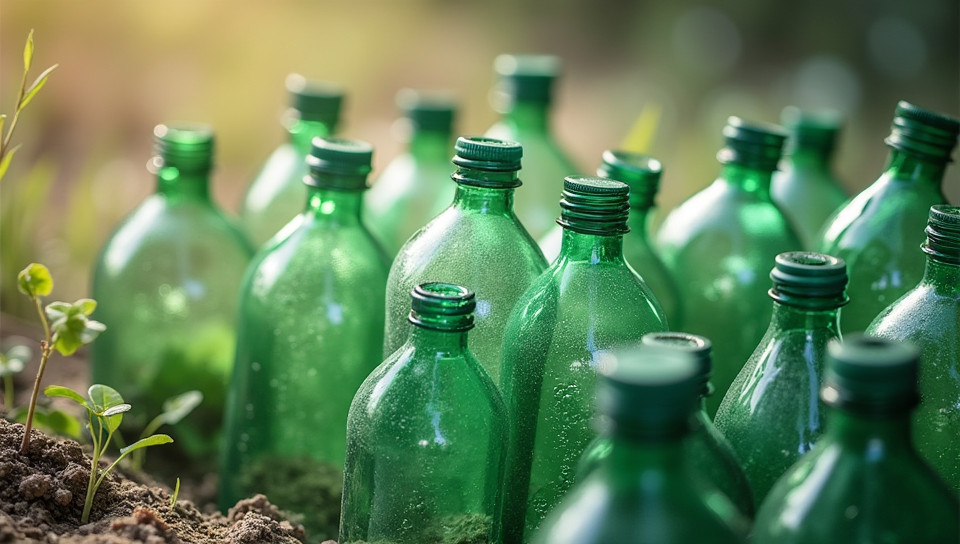Upcycling plastic bottles is not always environmentally friendly 51%

The Hidden Cost of Upcycling Plastic Bottles
As we continue to grapple with the consequences of plastic waste, upcycling has emerged as a popular solution for reducing our ecological footprint. Turning old plastic bottles into unique planters, bird feeders, and other creative projects has become a staple of eco-friendly living. However, beneath the surface of this seemingly harmless practice lies a more complex reality.
The Reality of Upcycling Plastic Bottles
While upcycling may seem like an environmentally friendly alternative to simply throwing away plastic bottles, it's essential to examine its true impact. Here are some reasons why upcycling plastic bottles might not be as eco-friendly as we think:
- It requires a significant amount of energy and resources
- The process often involves the use of chemicals and materials that can harm the environment
- Upcycled products may not always last long, leading to additional waste and disposal issues
The Energy Costs of Upcycling
One of the primary concerns with upcycling plastic bottles is the significant amount of energy required to transform them into new products. This process often involves cutting, drilling, and shaping the plastic, which requires a substantial amount of power. When you consider that most upcycled projects are small-scale and one-off, the cumulative impact becomes considerable.
The Chemical Conundrum
Upcycling plastic bottles can also involve the use of chemicals to clean or treat the plastic. While these substances might be effective in preparing the material for transformation, they can have detrimental effects on the environment when released into our ecosystems. Moreover, some upcycled products may contain residual amounts of these chemicals, posing a risk to human health and safety.
The Shelf Life of Upcycled Products
Another critical aspect of upcycling plastic bottles is the lifespan of the resulting products. While these items might be made from recycled materials, they often lack the durability and longevity of their original counterparts. As a result, upcycled products may need to be replaced frequently, leading to additional waste and disposal issues.
Conclusion
Upcycling plastic bottles has become an integral part of our eco-friendly endeavors, but it's essential to acknowledge its limitations and potential drawbacks. By understanding the energy costs, chemical conundrum, and shelf life concerns associated with upcycling, we can take a more nuanced approach to reducing plastic waste. Rather than relying solely on upcycling, let's explore other innovative solutions that prioritize sustainability and minimize environmental harm.
In conclusion, while upcycling plastic bottles is not inherently bad, it's crucial to consider the bigger picture before embracing this practice as a solution to our ecological woes. By doing so, we can work towards a more sustainable future where waste reduction and eco-friendliness are prioritized above all else.
- Created by: Aline Rocha
- Created at: Aug. 30, 2024, 10:19 p.m.
- ID: 8573







